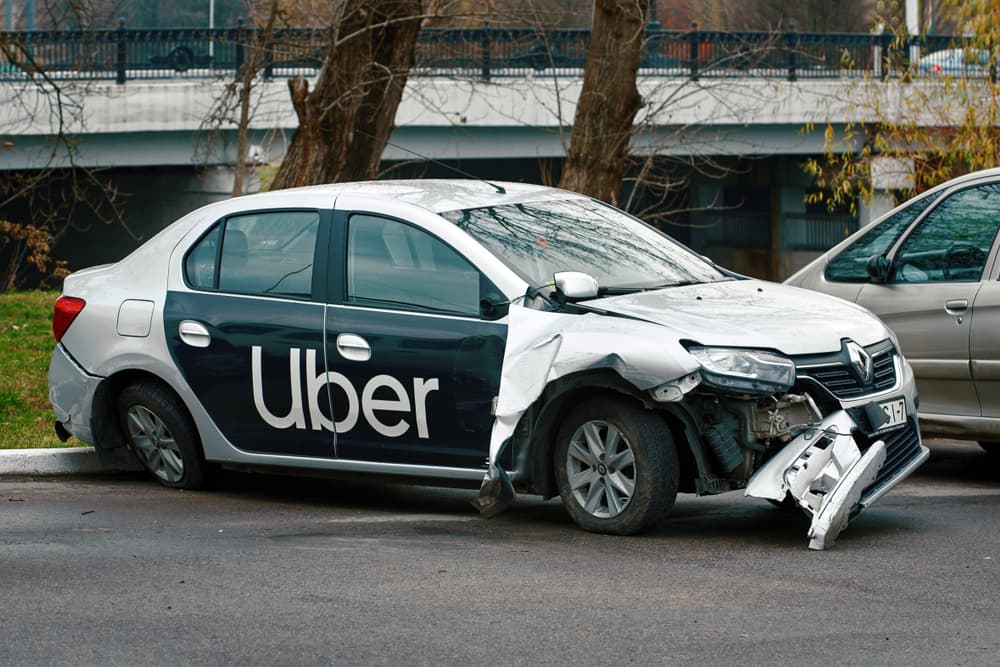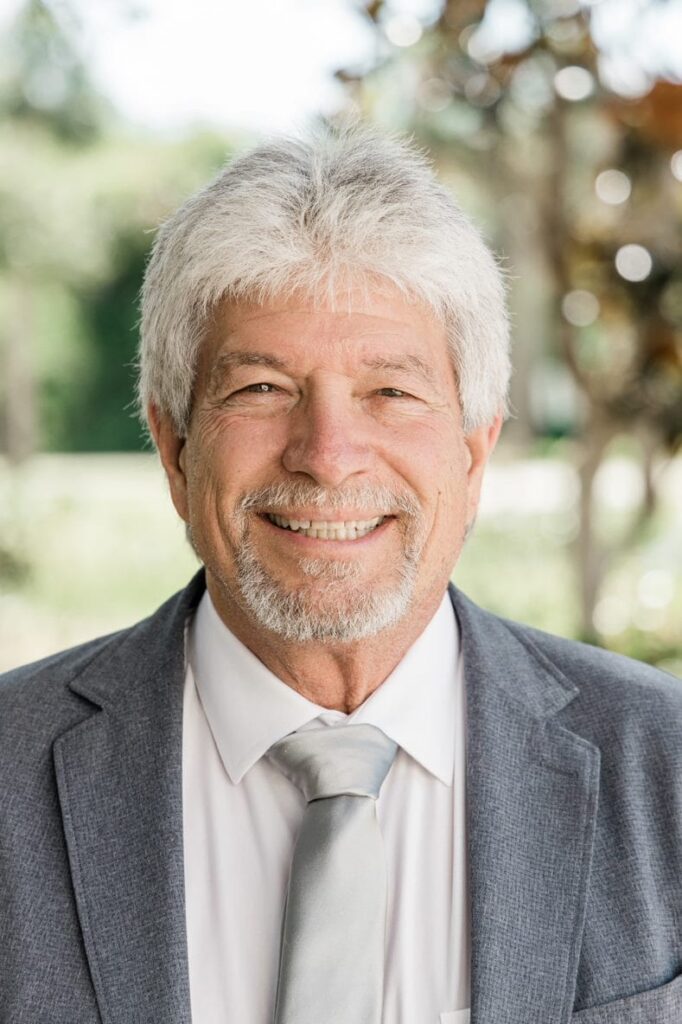Ridesharing services have become a ubiquitous and convenient way to get around, with Uber remaining the most well-known and popular option. Vehicles working for Uber can, unfortunately, cause serious accidents like any other car on the road.
These situations can present victims with unique legal challenges when trying to recover compensation for medical bills, lost income, and other significant damages.
Whether you're a rider, driver, or even a third party, Uber-related accidents involve several complicated questions about liability, insurance coverage, and how to handle the legal process.
The laws surrounding ridesharing services are still relatively new and challenging to understand, so you need a rideshare accident lawyer when an Uber-related accident happens.
Schedule A Consultation Today!
Understanding Uber's Complicated Insurance Policy

Uber covers its drivers, passengers, and others in an accident. Uber’s notoriously complicated policies contain specific requirements and limitations depending on multiple factors.
Uber's liability insurance coverage varies widely based on the status of a ride, which typically breaks down into three periods:
- When the app is on but no one has accepted a ride: The driver's personal insurance is the primary coverage here. Uber's insurance may step in, but it often only provides limited liability coverage. This phase is sensitive to the driver's status and usually results in minimal compensation from Uber.
- During rides (from accepting a ride to dropping off the passenger): Uber's insurance takes precedence during this phase. It covers third-party liability for injuries and property damage and can provide up to $1 million in compensation for damages. This is where Uber's responsibility is at its peak, and the protection for all involved parties is most robust.
- Post-ride or between rides: Once a ride is complete and before someone else accepts a ride, coverage falls into a gray area, where both the driver's personal insurance and Uber's limited liability policy might come into play.
Other factors can also influence coverage details, including:
- Uber driver's personal insurance: Uber drivers' personal insurance liability coverage functions in various ways, as some personal policies don't cover accidents during ridesharing.
- Injured Uber driver: Uber drivers have rights, too. If they're at fault for an accident, however, their access to compensation might be more limited and complex.
- Other drivers: If another driver is at fault, their insurance might be the primary source of compensation.
- Local regulations: Different cities or states may impose specific ridesharing requirements. Navigating these legal landscapes requires a nuanced understanding of the local rules governing Uber's operations.
Overlapping coverages or multiple policies may come into play, such as the driver's personal insurance, Uber's liability coverage, and a third party's policy.
Uber's liability and insurance policies weave a complex web of rules and regulations that may overwhelm rideshare accident victims. Claimants seeking compensation may face long delays in receiving payments or outright denial of their legitimate claims, often due to technicalities.
Navigating these complexities involves an in-depth understanding of the legal process and will likely require professional legal help.
What Damages Can You Recover After an Uber Accident?
Accidents involving Uber vehicles can often result in life-changing consequences, leaving you struggling with physical and financial challenges that influence many aspects of your life.
The injuries victims sustain in Uber-related car accidents can range widely in severity and type, but some of the most common include:
- Whiplash and neck injuries: Sudden stops or collisions can cause the neck to jerk violently, leading to strains, sprains, or more severe damage to the neck muscles and ligaments.
- Head and traumatic brain injuries: From concussion to severe brain trauma, head injuries can have long-lasting or even permanent effects on your cognitive function and quality of life.
- Fractures and broken bones: Bones that shatter or break due to impact may require intensive medical treatment and often involve a prolonged recovery.
- Spinal cord injuries: Damage to the spinal cord can lead to partial or complete paralysis, dramatically altering your life.
The legal system provides a path to alleviate these burdens by enabling you to recover compensation to help get your life back on track. These damages typically fall into two categories: economic and non-economic.
Economic Damages
Economic damages consist of the specific, out-of-pocket expenses and financial losses that result from an Uber accident.
- Medical bills: From the initial emergency treatments right after an accident to extended rehabilitative care, the medical costs of being in a serious crash can add up very quickly. Compensation for medical expenses covers surgeries, medications, physical therapy, and any future medical needs these injuries would require.
- Lost income: Injuries can affect your ability to work, whether in the short or long term. Compensation can cover not only income losses immediately after an accident but also a decreased earning capacity for injuries that permanently diminish your career prospects.
- Property damage: Property damage includes the costs of repairing or replacing personal property due to an accident, such as a damaged vehicle.
- Other out-of-pocket expenses: These can include related expenses, such as transportation to medical appointments or necessary home modifications due to disability.
Non-Economic Damages
Non-economic damages refer to the more abstract, subjective aspects of your suffering due to the trauma and stress of being in a serious car accident. These intangible losses are harder to quantify or demonstrate, but you still potentially deserve compensation.
Non-economic damages can include:
- Pain and suffering: This recognizes not just your immediate physical pain but the chronic discomfort and agony that may linger long after your accident.
- Emotional distress: The psychological scars an accident leaves, such as anxiety, depression, or post-traumatic stress disorder, can be as debilitating as physical injuries. Non-economic damages can reflect compensation for this profound emotional burden.
- Loss of enjoyment of life: Serious injuries might restrict your ability to pursue hobbies, socialize, or engage in activities that once brought joy and fulfillment. This intangible loss can be a factor in your compensation.
- Loss of consortium: If an accident alters your relationship with your spouse or family, you might be able to seek compensation for these difficulties.
You need a lawyer who understands these damages and how to document them when seeking compensation. Because the complex process varies by jurisdiction, you need a personal injury lawyer with experience in Uber-related accidents to ensure a proper evaluation of all potential damages as part of your claim.
How to Strengthen Your Case for Compensation After an Uber-Related Accident
An Uber-related accident comes with unique challenges due to all the obstacles the rideshare business model creates. Here are some steps you can take after this difficult experience to place yourself in a stronger position to protect your legal rights.
Seek Immediate Medical Attention and Follow Your Care Instructions
Get proper medical care for your well-being and to build a legal case with official medical records that link your injuries to the accident. Improper documentation can affect the credibility of your claim and allow Uber's insurance to argue you didn't sustain serious injuries.
If you skip doctor's appointments or don't follow medical advice, the insurance company can use this against you. Treat your injuries diligently.
Document Your Economic and Non-Economic Damages
Maintain accurate and thorough documentation of all your damages, including medical bills, repair estimates, correspondence with your employer, and any other paperwork your legal team can use to substantiate your financial losses.
Your lawyer may also advise you to keep a daily journal about your experiences while recovering, such as your daily pain levels, symptoms of emotional distress, and the ways your injuries have hurt you. This information can provide evidence of your pain and suffering, offering a more complete understanding of your non-economic damages.
Avoid Talking Directly With Representatives From Uber's Insurance
When Uber's insurance representatives reach out to you after an accident, their primary goal is to minimize the amount they pay. Their strategies may include taking your words out of context to undermine your claim, meaning they could use anything you say against you. Direct all communication through a legal representative or inform the insurance agent that you're seeking legal advice before discussing anything.
By following these strategies, you create a solid foundation for your case and maximize your chances of receiving fair compensation. The unique complexities of Uber-related accidents require specific legal skills and resources. Hiring an attorney with previous experience handling these cases can give you the effective guidance and support you'll need throughout this challenging process.
How a Rideshare Accident Lawyer Can Help
Being a victim of an Uber-related accident is physically painful and can lead to a complex legal struggle. If you find yourself a victim of an Uber-related accident, having the right legal support can make a significant difference.
A lawyer who understands the legal intricacies of Uber accidents can assess your specific situation and develop a tailored strategy to help you recover fair compensation.
A rideshare accident lawyer can help throughout this process by:
Calculating Damages Accurately
Accurately calculating all the possible damages after an Uber-related accident is critical, both economic and non-economic. This process requires a detailed understanding of your situation and future needs.
An experienced lawyer can consult with medical experts, economists, and other specialists to determine the full scope of potential damages. This ensures you pursue a fair amount that reflects the hardship and losses you've experienced.
Handling Paperwork and Complex Legal Procedures
Legal proceedings often involve intricate paperwork and complex legal procedures that can be overwhelming to navigate independently. Your attorney can handle these tasks for you, ensuring all paperwork is accurate and persuasive and submitting it in time to comply with important deadlines, such as the statute of limitations.
Managing these details can prevent common pitfalls that might otherwise derail your case. Having a lawyer protecting your best interests allows you to focus on your recovery instead of the legal process.
Negotiating With Insurance Companies
Insurance companies have skilled negotiators who maximize profits by reducing or denying claims as much as possible. Negotiating with them on your own will often result in accepting a much lower settlement than you deserve. A skilled rideshare accident lawyer can level the playing field and advocate for a settlement that accurately reflects your losses from an accident.
Going to Trial if Necessary
Most Uber-related car accident cases settle out of court, but there are rare situations where the best course of action is escalating a claim to a formal court trial. If, for example, a victim's injuries caused a catastrophic outcome with lifelong consequences, but Uber's insurer doesn't offer a fair settlement, you may need to go to court.
An experienced rideshare lawyer will present a compelling argument before a judge or jury, if necessary. You can approach the intimidating courtroom experience with confidence when you hire the right Uber accident attorney.
Contact a Rideshare Accident Lawyer Today

Uber-related accidents present unique legal challenges that require hard-earned knowledge and attention. In understanding the complex web of insurance policies and building a strong case for compensation, you might face a legal battle that can feel overwhelming.
A skilled rideshare accident lawyer can allow you to focus on healing while your legal team fights to recover fair compensation.
Whether it's understanding your best legal options, handling paperwork, or taking your case to court, a skilled personal injury attorney can be your most valuable asset in recovering from an Uber-related accident.
